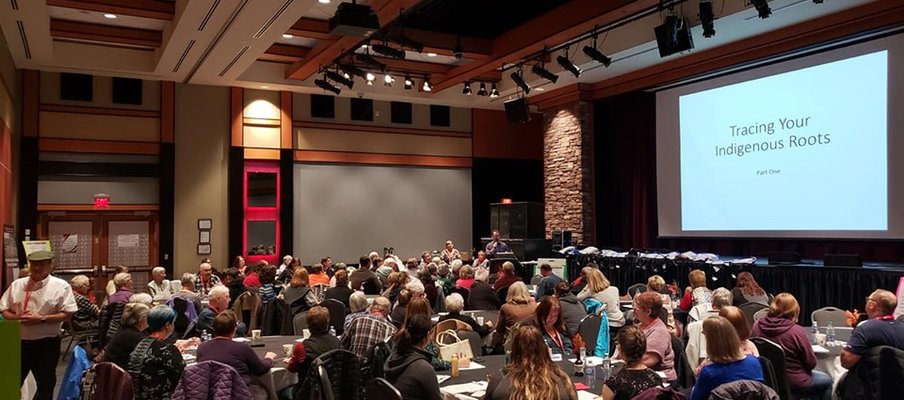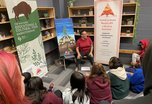Helping Indigenous Peoples Trace Their Roots

Related Programs

Some consider genealogy research a hobby, but others need this information to shed light on their cultural identities. In particular, the Saskatchewan Genealogical Society (SGS) has been able to help many First Nation and Métis individuals find answers to questions they may have about their ancestry and lineage.
Laura Hanowski, volunteer and former librarian at the SGS, has spent considerable time assisting individuals and groups interested in tracking their Métis heritage. She says that public records dating back as far as 1901 census are able to identify racial origin. Research into the Census information, registries, scrip documents, and other records are able to help First Nation and Métis peoples clarify their ancestry, which would help them determine their status, their rights and most importantly, give them a better sense of their identity.
Hanowksi says public records begin with the 1926 census, but the 1901 census asks for racial origin, identifying if one’s ancestors were French, English or Scottish. “If families were members of a band, you could look into annuity treaty payments up to 1909.” For specific Métis ancestry searches, Hanowski said family members can search for the scrip documents and registers. She adds that not all of them have been digitized. Some are still found in correspondence files of the Dominion Lands Branch.
“For people who were of French Roman-Catholic faith, there are Saskatchewan church records online”, she says. In addition, the Virtual Museum of Métis History and Culture, hosted by the Gabriel Dumont Institute, is a wealth of information and the Saskatchewan Archives still has files available to the public on microfilm.
To help people trace their Indigenous ancestry, the SGS has developed important partnerships, such as one with the Métis Nation – Saskatchewan (MNS). Tammy Vallee, registrar for the Métis Nation – Saskatchewan (MNS) and former SGS board member, says the partnership with SGS is informal, but mutually beneficial. Vallee is responsible for the Provincial Citizen Registry, which is used to help individuals find their Métis roots.
“I’ve presented to the SGS staff what the role of the registry is and what we do”, explains Vallee. “A lot of what we do is information exchange. It’s knowing how to best help clients.” She says her staff will refer clients to the SGS for research support, and the SGS will refer people looking for information on Métis status to the MNS. “We have connections to each other and we try and promote each other as much as we can.”
Vallee recommends the SGS courses to anyone interested in ancestry workshop. In addition, Hanowski continues to conduct workshops throughout Saskatchewan, including several in northern Saskatchewan.
“At the end of September, I worked with the Yorkton Branch (of SGS), who put on a mini-seminar, where I was invited to present a session on tracing your Aboriginal and Métis Ancestors,” she explains. Due to her work in this area, she was invited to become part of a research team with the Métis National Council. Besides this course and various resources, she worked on a book Tracing Your Aboriginal Ancestors on the Prairie Provinces: A Guide to the Records and How to Use Them, which was published in 2006 and updated in 2013 by the Saskatchewan Genealogical Society, with financial support from the Métis National Council.
“It outlines what the sources are and a guide on how to use them,” Hanowski explains. “It’s there to help you find information and where to look for the records.” She notes that more resources are becoming available in digitized form online all the time.
The SGS receives funding through SaskCulture’s Annual Global Fund.




